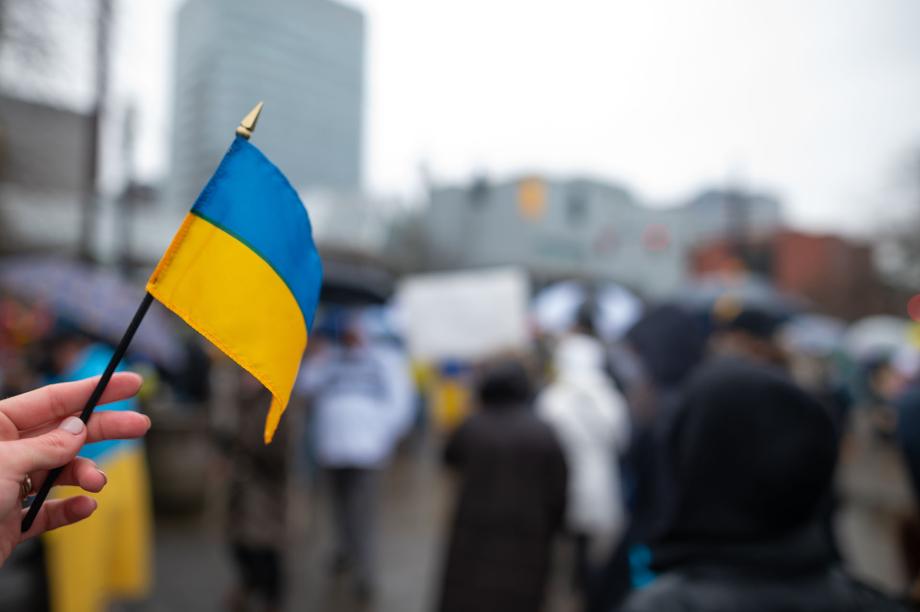Opinion: The angelic peer pressure in Central and Eastern Europe

Wirtten by: Dr. Péter Krekó, Director, Political Capital Institute, Senior Fellow, Center for European Policy Analysis
With the visit of the Polish, Czech, and the Slovenian Prime Ministers to Kyiv, their actions set a norm for leadership across the whole European Union, especially for those across Central and Eastern Europe (CEE). Leaders who have not followed their example, remain in an uncomfortable position explaining their decisions. This situation is crucial to keep up this angelic peer pressure.
In their book “The Light That Failed” Ivan Krastev and Stephen Holmes persuasively argue about the importance of imitation in politics domestic and foreign alike. With showing up a high level of bravery, Volodymyr Zelensky has emerged as the number one role model to imitate in the Western World.
Even leaders such as Emmanuel Macron seem to get inspired by the style and grit of the President of Ukraine. But what is even more important, Zelensky’s actions during the war have quickly set the standards of bravery for leaders in Europe, pushing them to go beyond their original limits. And this is especially true for CEE, where the war in Ukraine moved some leaders to invent and adopt new forms of heroism.
The visit of Prime Ministers Morawieczki, Fiala, and Jansa to the war-torn capital of Kyiv to meet with Zelensky in a bunker was heroic. Consequently, this symbolic expression of solidarity is desperately needed these days and was undoubtedly very well received by the people and leaders of Ukraine alike.
Consequently, it is essential that this act of solidarity adds pressure on politicians who did not join this diplomatic mission. The Slovakian Prime Minister referred to security concerns and was firmly counter-advised by his own services. At the same time, he declared his very strong sympathy and support towards the visit and expressed regret about his decision.
Viktor Orbán, the most dovish Prime Minister of the CEE block, failed to adequately explain why he did not turn up at the visit – where two leaders s with whom he has cultivated a good relationship and has some ideological proximity, Jansa and Morawieczki both energetically attended.
Feeling that not attending can hurt his domestic popularity as a tough fighter, he traveled to Hungary’s Eastern border for three days personally to help the refugees and defend the border. Despite the war, Orbán is still having an outlier policy towards Russia and Ukraine.
He practically declared the policy of equal distance from Ukraine, Russia, the US, and the EU in his speech on 15th of March (ironically: on the celebration of the Hungarian Freedom Fight that the Habsburg and the Russian empire broke down), the same day when other Prime Ministers were heading to Kyiv. The Hungarian state-owned media keeps spreading Kreml-cultivated conspiracy theories and disinformation when explaining the war.
Still, Orbán has kept the EU line on the sanctions so far, and Hungary also supports EU weapon supplies to Ukraine and supports Ukraine’s candidacy for membership to the EU. While there were several concerns about whether Orbán would support the more onerous sanctions (e.g., SWIFT), he has passed the test. Part of the reason why the Hungarian government has overcome its reluctance to punish Russia and its ambivalence towards Ukraine is the angelic peer pressure coming from other CEE countries V4 countries (especially Poland, for proof, look at this tweet), but also from Slovenia, Bulgaria, and Romania. Orbán prepares for the next governmental term, and he knows he cannot totally isolate himself in the EU.
Neither from France and Germany, but especially not from the CEE peers where he still feels some ideological like-mindedness. On the 15th of March, Donald Tusk, a previous friend and supporter of Orbán, came to Budapest to deliver a powerful speech – for the opposition candidate, Peter Márki-Zay. Orbán cannot afford to let similar things happen with the Polish or the Slovenian leaders if they are reelected. Orbán will not be expected to go to Kyiv. Still, he can maintain its reluctant support for the sanctions and EU help to Ukraine – if peer pressure from CEE prevails, before and if needed, after the election.